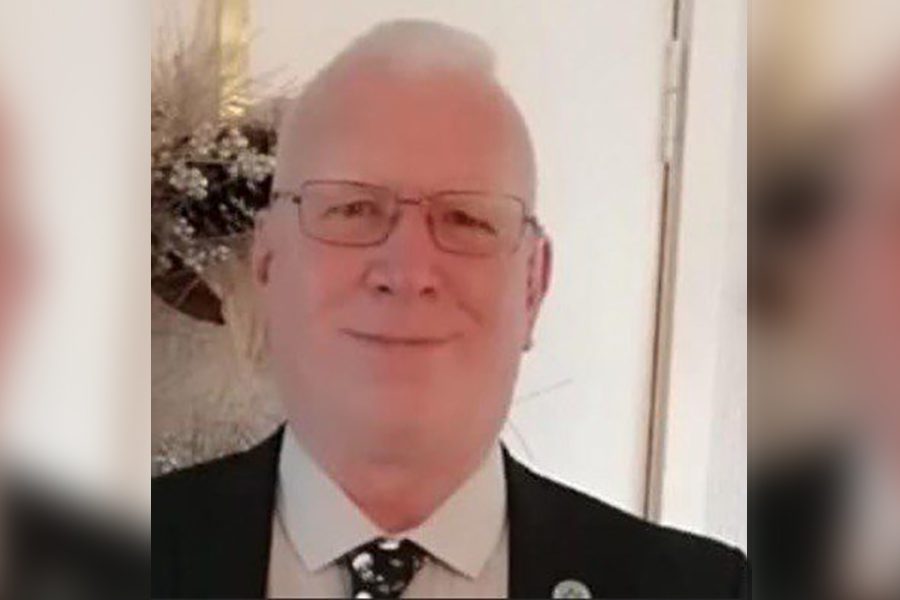Peter shares his love of sport and how it continues to be a major part of his life. He also tells us about barriers he has faced and how this makes him feel. Peter champions the need to remove these barriers to enable people living with dementia to continue to enjoy sporting life.
My name is Peter…
My name is Peter Jones. I’m 69 and I have Vascular Dementia.
I have been involved in sport since I was at school. I’ve taken part in many types of sport, whether it be golf, cycling, or football. My son still takes me out to play golf and he looks after me on the course. I am working on my handicap! I still stay active, going to a weekly gym session with a fitness coach, which is good for my physical and mental health.
“Sport has always been a big part of my life”
For over 24 years, I was a football referee. I started off at the local level, advancing to the Northern League, the Northern Premier League, and then as an official for the English Football League, where I was a reserve referee for a season. I was fortunate enough to officiate at various venues up and down the country. I remember being appointed an official at a School National Cup Final at Goodison Park in Liverpool, where the guest of honour was one Sir Bobby Charlton. I got to wear the Three Lions on my shirt with the English Schools FA – that was a special moment for me.
“Sometimes the barriers to attending feel too great”
I have watched sport as a spectator since I was a boy. I would love to be able to go back to watching it live – I miss the buzz of the crowd and seeing professional sportspeople at the top of their game reminds you of why you became a fan. Being able to gain access to a sports venue is important for someone with dementia. Just because you have a diagnosis, it doesn’t mean you should stop attending. You may have followed a sport for years, but sometimes the barriers to attending feel too great. If a fan stops going to their club because they have dementia and feel the venue is no longer accessible… Well, that doesn’t feel right to me. I want to ask sports clubs to please consider this and make time to help people with dementia overcome these barriers.
Overcoming the challenges to watching sport
“I know there are things that can be done”
Some of the challenges I face are accessing the grounds, trying to get back to my seat after going to the toilet, or even trying to stand up and watch what is happening on the pitch. While I love the atmosphere a crowd creates, I wouldn’t feel safe among supporters anymore – I would be afraid for my safety and would find it overwhelming. Many sport venues are in remote areas of the town or city, and sometimes I don’t feel like I can make it there safely. I also find that some facilities don’t have information about how they help disabled people, especially those with hidden disabilities like dementia. Imagine going for something to eat at a stadium, but then being unable to remember how to get back from where you came from – or even where you are. Then imagine not knowing who at the game might be able to help you. You feel lost and alone. It is not easy, but I know there are things that can be done.
Time for change
I am pleased that professional sport is coming on board and making a difference for people with dementia to enjoy watching sport again. It will help with our wellbeing, keep us connected to teams we have followed for years, and can also help our carers have a better quality of life too.
Sport has always been a big part of my life – please help me and many others to keep it that way.
Read more about the benefits of keeping physically and mentally active to live well with dementia here
Find tips for getting out and about in your community here
Read about the partnership between the Alzheimer’s Society and the English Football Association.
Find practical support for members of the Professional Football Association (PFA) being offered by Dementia UK
Read more about how Peter is determined to make sport dementia friendly here.






